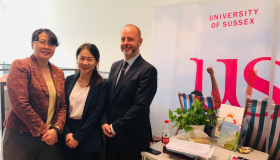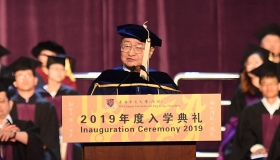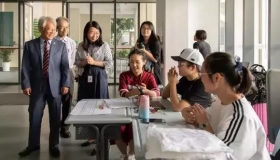Night Talks | College Life & All-Round Education
“At that time, we lived in Ying Lin Tang. We wore black dorm-tee, with a dragon embroidery at the back. If that year the Resident Student Association had no money, the dragon would be white; otherwise it would be gold. Students in Ying Lin Tang went to eat snack at late at night and acted noisily. They drew attention of police for being loud: “Are you having a triad activity?” Actually, students were just having late-night snacks, while arguing about academic matters.”
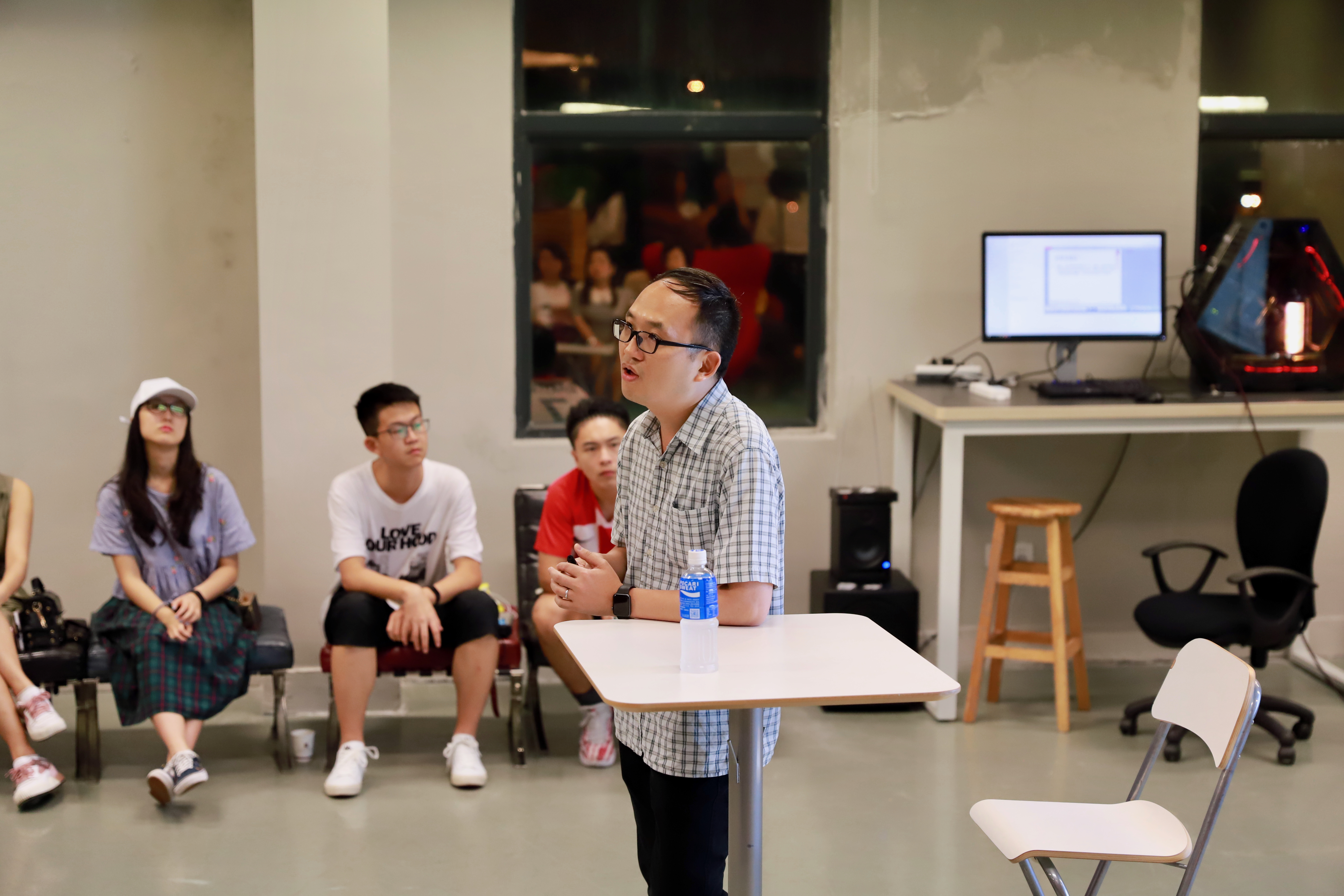
Ying Lin Tang is a dormitory of CUHK Chung Chi College, composed of only male students. It’s said that students there “have fun to the extreme”. If you search online about their activities, you can see the photos depicting traditional face cards used during Ying Lin Tang orientation, widescreen LED advertisements posted on subway throughout the dorm’s sixteenth anniversary celebration. There’s no doubt that students had a sense of belongings to their college. For professor Pan Mingji, who lived in Chung Chi College during school years and became a warden of Wu Yee Sun College later on, the roles and functions of college to students is a very familiar and important topic.

Students from the same school often discuss academic affairs; while students in college are from different majors, they can be unconstrained and imaginative, talking about all kinds of things. Apart from events and parties, they even chat privately in their dorm rooms. Professor Pan remembers, “At that time we, two roommates from Department of Chinese Language and Literature, could chat from the time we lay down to two o’clock in the morning.” They chatted about everything – from boring topics to love affairs. “Studying is a major part of life in university, but communication with each other is as important and it would stretch into society; in college, students’ different experiences are inevitable”.

Nevertheless, colleges also have a responsibility of supporting students’ educational process. Professor Pan once found a textbook dating back to twenty years ago, titled “Read and Write”. This was a text used in a required course provided by Chung Chi College teaching skills of reading articles and writing papers at university. Nowadays, Wu Yee Sun college, where Pan lives and works, provides some general foundation courses including topical discussions and social responsibilities. These courses require students to go outside of campus and conduct social research. “When PSP was popular, students liked to discuss PSP’s Global Influence.” In order to get several school credits, students must participate in high-table dinner held by the college at least once. “Some students ask about whether we could stop inviting some guests who are exceedingly ‘successful’, since they have no idea what to talk with them, and they think it would be better to invite some ordinary people”. In fact, the invited gurus are willing to sit down and share their experiences with students. Students who care enough to learn can learn a lot from the guests. In addition to real “courses for accumulating credits”, students in college are encouraged to go outside of campus “to visit places far from here, serve local and overseas communities.” Overseas Exchange Project and Global Learning Plan are two of multiple programs operated by the college to support students to experience cultural exchange and social practices.
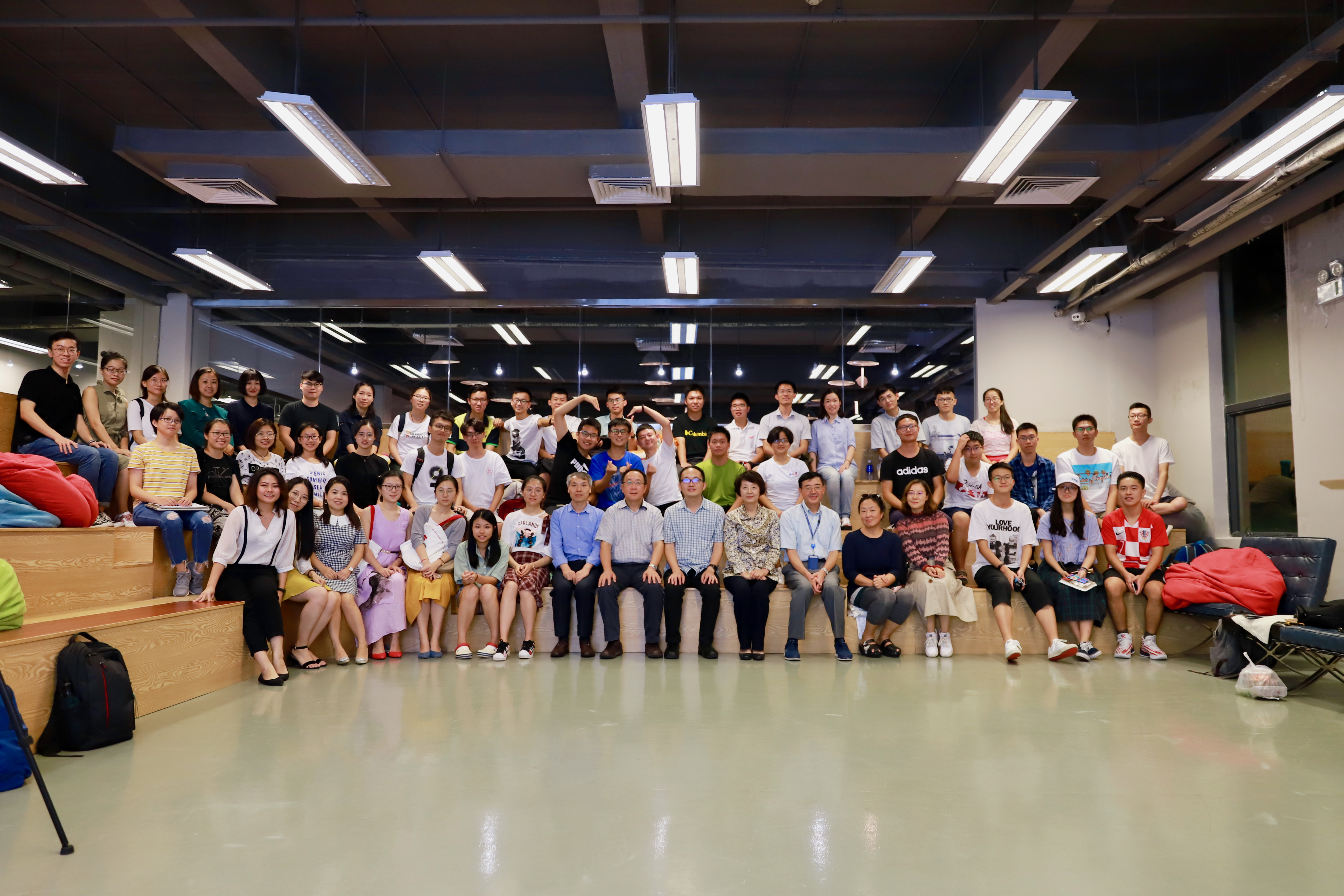
“When we were engaged in the activities in Ying Lin Tang, we could not sleep for five days and four nights. Now I would rather read the Thirteen Classics than to stay up,” Professor Pan said. The last page of his PowerPoint read “Ten of the most regrettable things in college, including “never stay to hear the music of library closing every night,” and “chat happily with the roommates instead of participating in college activities or mass events.” Just as Professor Pan said, “How to arrange time? Your study is very important, but so do activities.” It is left to the students to experience this themselves.

